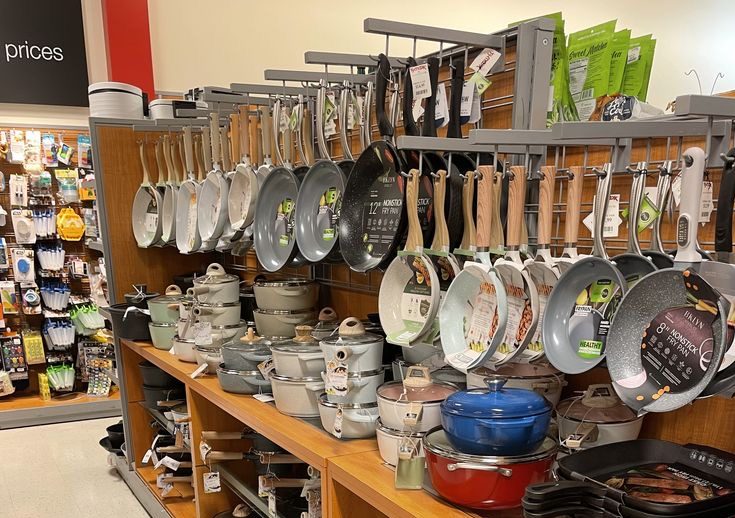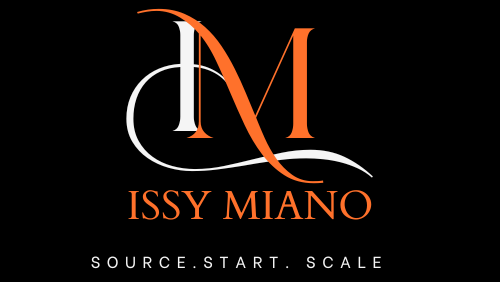A Comprehensive Guide to Starting a Kitchenware and Decor Business

Starting a kitchenware and decor business can be both exciting and overwhelming, especially if you’re new to the industry. As someone who has navigated the world of retail and wholesale for over a decade, I’m here to share my knowledge and help you embark on this journey with confidence. Whether you’re looking to open a physical store, set up an online shop, or both, this guide will provide you with the essential steps and tips to get started.
Understanding the Market
Before diving into the nitty-gritty of starting your business, it’s crucial to understand the market you’re entering. Kitchenware and decor are evergreen products with consistent demand, but trends and consumer preferences can vary widely. Here are a few steps to help you get a grasp on the market:
- Research Trends: Follow home decor blogs, magazines, and social media influencers to identify current trends. Platforms like Pinterest and Instagram are great for visual inspiration and trend spotting.
- Identify Your Niche: Decide whether you want to focus on modern, rustic, vintage, or another style. You could also specialize in eco-friendly products, luxury items, or affordable essentials.
- Know Your Competitors: Study other kitchenware and decor businesses. What are they doing well? What can you do differently to stand out?
Creating a Business Plan
A solid business plan is the foundation of any successful business. It will guide your decisions and help you stay on track. Here’s what to include:
- Executive Summary: Briefly describe your business idea, mission, and vision.
- Market Analysis: Summarize your market research, including trends, target audience, and competitors.
- Business Model: Outline how you plan to make money. Will you sell online, in a physical store, or both? Will you offer wholesale or retail products?
- Product Line: Detail the types of products you plan to sell. Include suppliers and inventory management plans.
- Marketing Strategy: Describe how you’ll attract and retain customers. Include online marketing, social media, and any other promotional tactics.
- Financial Plan: Provide a budget, sales projections, and funding requirements. Be realistic and consider all potential costs.
Sourcing Products
Finding reliable suppliers is the key to ensuring the quality and consistency of your inventory. Here are some steps to help you source products:
- Identify Potential Suppliers: Use online directories, trade shows, and industry contacts to find potential suppliers. You can find a comprehensive list of suppliers here
- Request Samples: Before committing to a supplier, request samples to evaluate the quality of their products.
- Compare Prices: Get quotes from multiple suppliers to ensure you’re getting the best deal. Don’t forget to factor in shipping costs and any potential customs duties.
- Build Relationships: Establish good relationships with your suppliers. Reliable suppliers are valuable partners in your business success.
Setting Up Your Store
Whether you’re opening an online store, a physical store, or both, there are several important steps to consider:
- Online Store: Choose an e-commerce platform like Shopify, WooCommerce, or Etsy. Ensure your website is user-friendly, visually appealing, and mobile-responsive.
- Physical Store: Find a location with good foot traffic and visibility. Design your store layout to be inviting and easy to navigate. I find most kitchenware store a little cluttered which doesn’t help clients a rythym to it.
- Inventory Management: Use inventory management software to keep track of your stock levels, orders, and sales. This will help you avoid overstocking or running out of popular items.
- Point of Sale (POS) System: Invest in a reliable POS system for your physical store to streamline transactions and keep track of sales data.
Marketing Your Business
Marketing is essential to attract customers and grow your business. Here are some effective marketing strategies:
- Social Media: Utilize platforms like Instagram, Facebook, and Pinterest to showcase your products, share decorating tips, and engage with your audience.
- Content Marketing: Start a blog on your website to share decorating ideas, product reviews, and how-to guides. This will help attract organic traffic and establish your authority in the industry.
- Email Marketing: Build an email list and send regular newsletters with promotions, new arrivals, and decorating inspiration.
- Collaborations: Partner with influencers, interior designers, or other businesses to expand your reach and attract new customers.
- Advertising: Invest in online advertising through Google Ads, social media ads, or sponsored posts to target specific audiences.
Managing Finances
Good financial management is crucial for the sustainability of your business. Here are some tips:
- Budgeting: Create a detailed budget that includes all your expenses, from rent and utilities to marketing and inventory.
- Bookkeeping: Use accounting software to keep track of your income and expenses. This will make tax time much easier.
- Cash Flow Management: Monitor your cash flow closely to ensure you have enough funds to cover your expenses. Plan for seasonal fluctuations in sales
- Funding: If you need additional funding, consider options like small business loans, crowdfunding, or investors.
Customer Service
Providing excellent customer service will help you build a loyal customer base and positive reputation. Here’s how to do it:
- Responsive Communication: Respond promptly to customer inquiries and resolve any issues quickly.As much as we would like this to be handled by staff members it’s important it’s very important to have a way of keeping an eye on this( I have had my share of poor response caused by lazy staff members)
- Clear Policies: Have clear return, exchange, and shipping policies. Make sure these are easily accessible on your website and in your store.
- Personal Touch: Add a personal touch to your customer interactions, whether it’s a handwritten thank-you note with each order or personalized recommendations.
Continuous Learning and Improvement
The kitchenware and decor industry is always evolving, so it’s important to stay updated and continuously improve your business:
- Stay Informed: Keep up with industry news, trends, and new product launches.
- Seek Feedback: Regularly ask your customers for feedback and use it to improve your products and services.
- Attend Events: Participate in trade shows, workshops, and networking events to learn from others and build connections.
Starting a kitchenware and decor business requires careful planning, dedication, and a passion for creating beautiful spaces. By following these steps and staying committed to your vision, you can build a successful and fulfilling business. Remember, every successful entrepreneur started somewhere, and with the right mindset and resources, you can achieve your goals.
Best of luck on your journey!
—
Feel free to reach out if you have any questions or need further guidance. I’m here to help!


